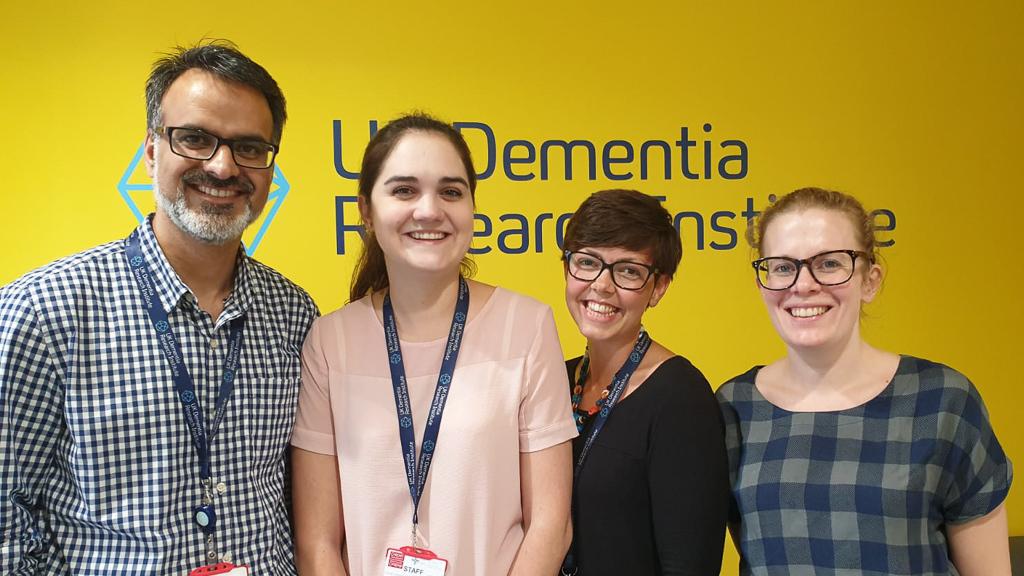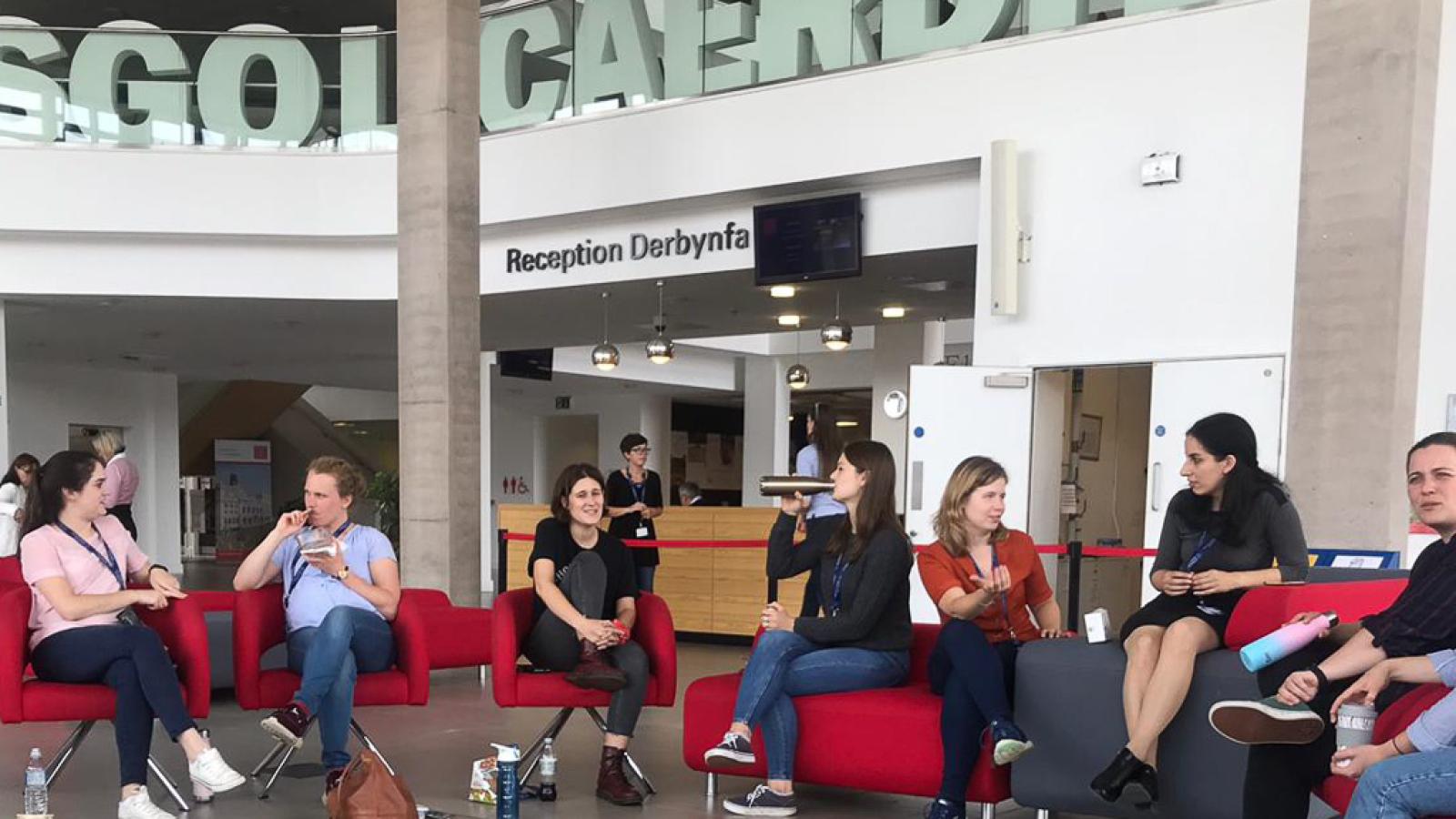Early Career Researchers (ECRs) are the future: their fresh thinking and dedication will help us conquer dementia but they cannot do it alone. Support from the institution, supervisor and fellow peers is fundamental to the success of an ECR - whatever career path they choose to take. We want to empower our ECRs and help equip them with the skills to face the many challenges they will encounter along the way – including building their confidence, developing public speaking skills, ensuring that they understand what is required of them for the next stage of their career and how to obtain funding.
At the UK DRI, we back our ECRs to be bold, take risks and fulfil their potential. Just recently, the UK DRI awarded its first round of pilot project awards – a scheme designed to inspire postdocs to consider novel avenues of research aimed at understanding or treating neurodegenerative diseases. The second round is launching after the summer, so stay tuned…We also recently opened a call for small grants for ECRs in the Neuroinflammation theme to support collaborative meetings/sandpits, and travel to conferences – we plan to launch similar calls for ECRs in other emerging cross-centre themes soon.
We are delighted to see a group of Cardiff researchers have taken the initiative to organise a range of initiatives aimed specifically at ECRs, and appointed representatives as a conduit for feedback and change in their Centre. They have also reached out to the other UK DRI centres to nominate ECR representatives and create a wider UK DRI ECR network to share ideas, discuss common issues, and strengthen the level of interaction across the institute.
The UK DRI ECR network will also have the opportunity to feed into a ‘UK DRI Training and Career Development Committee’, being assembled by HQ, with the aim to devise training initiatives tailored to the needs of UK DRI researchers at all career stages.
Here - Megan, Sarah, Bilal & Georgina tell us about their activities so far, what they hope to achieve in the future and the financial support they are receiving from the UK DRI at Cardiff:

(Left to right)
Dr Bilal Malik
Dr Sarah Carpanini
Dr Megan Torvell
Dr Georgina Menzies
Hello!
We are the Early Career Researcher representatives at Cardiff University.
Within the UK DRI at Cardiff, we are quite a diverse bunch, with very different specialities and focuses in dementia research: stem cells, Drosophila, mouse models, and bioinformaticians looking at ‘big data’. To encourage an inclusive environment, we’ve organised monthly lunches where we all get together in a relaxed environment, bring our own food and get to know each other.
We hold a forum every fortnight where we hear from two ECRs about what they’ve been up to. Speakers are given 30 minutes to talk about any aspect of their research. It can be used as an opportunity to practice formal talks, present problems they’re having in the lab or future plans – the idea is to encourage open discussion and collaboration among all the ECRs.
We have recently been given responsibility for a small fund we’re calling the Cardiff UK DRI ECR Collaboration Fund. Its purpose is to chiefly enable UK DRI ECRs from Cardiff to visit other centres within the institute. We’re hoping this will facilitate collaborations between centres and allow our ECRs to learn new techniques and benefit from the expertise within the wider UK DRI. We are planning to put out multiple calls per year for proposals from the ECRs and we have put together a panel to decide how to allocate the money. We hope to be able to fund at least 5 visits per annum (including travel and accommodation). This will also give ECRs valuable experience in writing grant applications.
We are also linking into pre-existing ECR networks including Cardiff University ECR network which provides training opportunities such as grant writing, professional development and teaching; and the Alzheimer’s Research UK (ARUK) ECR network which provides us with funding opportunities. This allows us to contribute to ARUK science meetings and gives us a voice in planning the ECR day for the annual ARUK conference.
Additionally, we plan to organise several events at the upcoming UK DRI Cardiff retreat to Gregynog, including the opportunity to pitch ideas for funding.
In order to facilitate open bidirectional communication, we, the reps, take it in turn to attend weekly executive meetings with Julie Williams, our centre associate director, Nicola Denning, our centre manager, all the group leaders and Andrew Jefferson, the lab manager. At these meeting we give a voice to the ECRs at our centre. We then relay relevant information back to fellow ECRs during our fortnightly forum.
If you want to get in touch with us please do so on this email address: DRI-ECR@cardiff.ac.uk
Dr Megan Torvell, Dr Sarah Carpanini, Dr Bilal Malik Led by Sêr Cymru II Fellow Dr Georgina Menzies
Following in the footsteps of Cardiff, all centres, with the exception of Care Research & Technology at Imperial (newly established), have now appointed the following ECR representatives. If you have an idea for an activity or wish to get involved at your centre, please contact the relevant representatives below.
UK DRI at Cardiff: Dr Megan Torvell, Dr Sarah Carpanini & Dr Bilal Malik (DRI-ECR@cardiff.ac.uk)
UK DRI at UCL: Dr Sarah Aldous & Benedikt Holbling
UK DRI at King’s: Dr Alinda Fernandes, Dr Alexandra Louka, Daniel Jutzi & Natalia Arias Del Castillo
UK DRI Imperial: Dr Alexandra Phillips & Dr Berta Anuncibay-Soto
UK DRI at Cambridge: Dr Hugo Fernandes Ribeiro, Dr Daniel Hughes & Dr Emma Wilson
UK DRI at Edinburgh: Dr Michael Daniels
